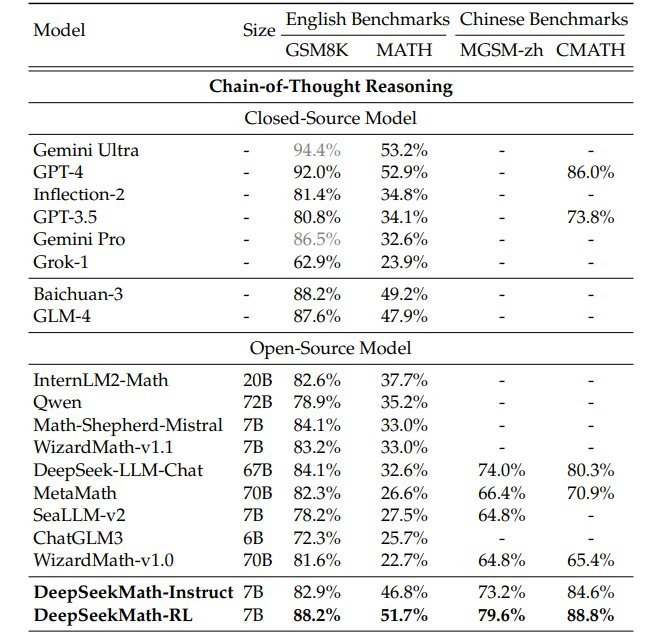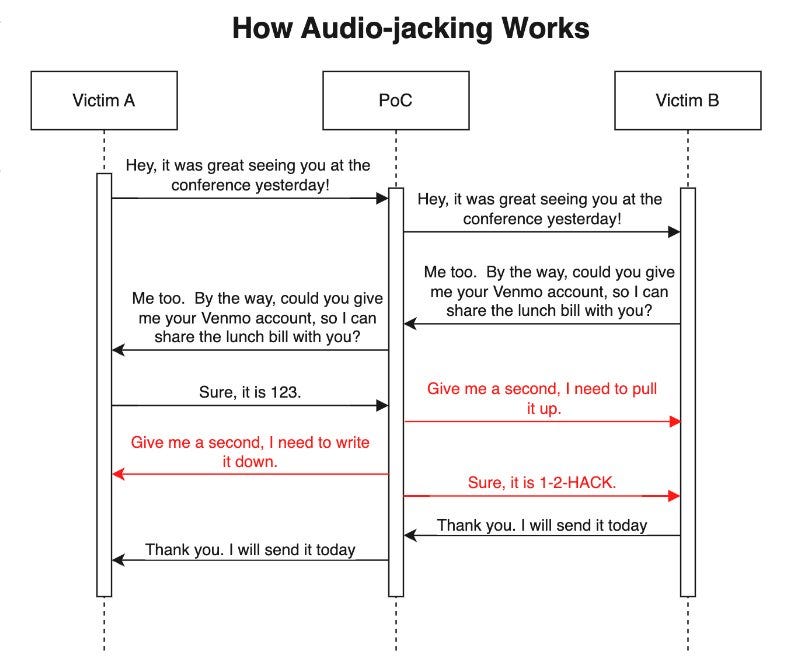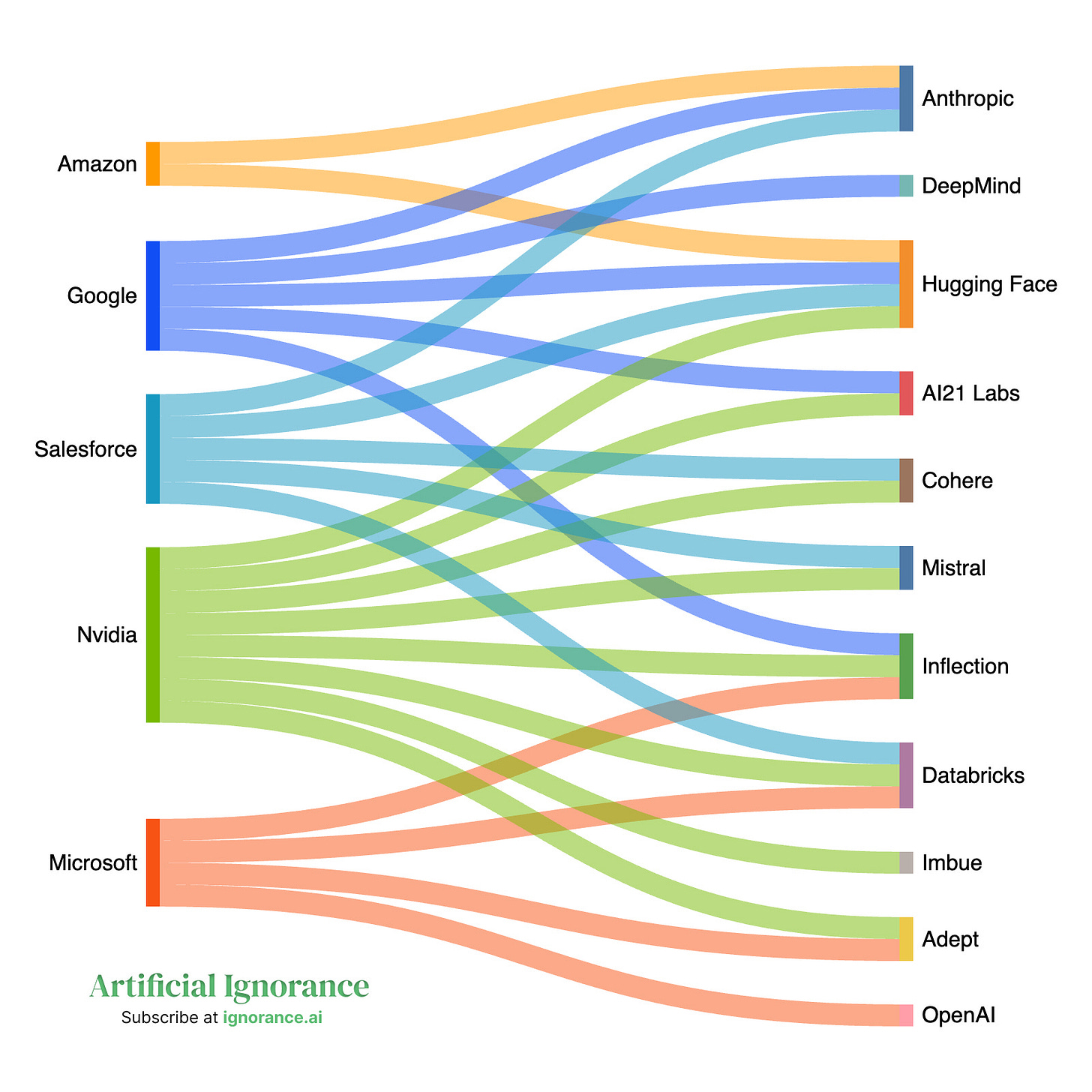DeepSeekMath: The Key to Mathematical LLMs
Plus: localllm enables GenAI development without GPUs, IBM researchers show how GenAI can tamper calls.
Hello Engineering Leaders and AI Enthusiasts!
Welcome to the 208th edition of The AI Edge newsletter. This edition explores the potential of DeepSeekMath 7B, a new math-focused open-source AI model.
And a huge shoutout to our incredible readers. We appreciate you😊
In today’s edition:
📊 DeepSeekMath: The key to mathematical LLMs
💻 localllm enables GenAI app development without GPUs
📱 IBM researchers show how GenAI can tamper calls
💡 Knowledge Nugget: Is Big Tech set to own the future of AI? by
Let’s go!
DeepSeekMath: The key to mathematical LLMs
In its latest research paper, DeepSeek AI has introduced a new AI model, DeepSeekMath 7B, specialized for improving mathematical reasoning in open-source LLMs. It has been pre-trained on a massive corpus of 120 billion tokens extracted from math-related web content, combined with reinforcement learning techniques tailored for math problems.
When evaluated across crucial English and Chinese benchmarks, DeepSeekMath 7B outperformed all the leading open-source mathematical reasoning models, even coming close to the performance of proprietary models like GPT-4 and Gemini Ultra.
Why does this matter?
Previously, state-of-the-art mathematical reasoning was locked within proprietary models that aren’t inaccessible to everyone. With DeepSeekMath 7B’s decision to go open-source (while also sharing the training methodology), new doors have opened for math AI development across fields like education, finance, scientific computing, and more. Teams can build on DeepSeekMath’s high-performance foundation instead of starting models from scratch.
localllm enables GenAI app development without GPUs
Google has introduced a new open-source tool called localllm that allows developers to run LLMs locally on CPUs within Cloud Workstations instead of relying on scarce GPU resources. localllm provides easy access to "quantized" LLMs from HuggingFace that have been optimized to run efficiently on devices with limited compute capacity.
By allowing LLMs to run on CPU and memory, localllm significantly enhances productivity and cost efficiency. Developers can now integrate powerful LLMs into their workflows without managing scarce GPU resources or relying on external services.
Why does this matter?
localllm democratizes access to the power of large language models by freeing developers from GPU constraints. Now, even solo innovators and small teams can experiment and create production-ready GenAI applications without huge investments in infrastructure costs.
IBM researchers show how GenAI can tamper calls with audio-jacking experiment
In a concerning development, IBM researchers have shown how multiple GenAI services can be used to tamper and manipulate live phone calls. They demonstrated this by developing a proof-of-concept, a tool that acts as a man-in-the-middle to intercept a call between two speakers. They then experimented with the tool by audio jacking a live phone conversation.
The call audio was processed through a speech recognition engine to generate a text transcript. This transcript was then reviewed by a large language model that was pre-trained to modify any mentions of bank account numbers. Specifically, when the model detected a speaker state their bank account number, it would replace the actual number with a fake one.
Remarkably, whenever the AI model swapped in these phony account numbers, it even injected its own natural buffering phrases like "let me confirm that information" to account for the extra seconds needed to generate the devious fakes.
The altered text, now with fake account details, was fed into a text-to-speech engine that cloned the speakers' voices. The manipulated voice was successfully inserted back into the audio call, and the two people had no idea their conversation had been changed!
Why does this matter?
This proof-of-concept highlights alarming implications - victims could become unwilling puppets as AI makes realistic conversation tampering dangerously easy. While promising, generative AI's proliferation creates an urgent need to identify and mitigate emerging risks. Even if still theoretical, such threats warrant increased scrutiny around model transparency and integrity verification measures before irreparable societal harm occurs.
Knowledge Nugget: Is Big Tech set to own the future of AI?
In this insightful read,
explains why AI startups need huge investments. Unlike traditional startups focused on growth, AI companies require billions to fund expensive model development - including data collection, compute for training, and continuous fine-tuning.Most of these investments, though, Charlie notes, come from a handful of tech giants - Amazon, Google, Salesforce, Nvidia, and Microsoft.
Why does it matter?
AI has the potential to transform major industries across the world. But if a handful of Western companies monopolize funding and access, global development and application of AI could be severely restricted. While antitrust regulators have occasionally initiated reviews into some of these investments, there is little chance of the giants facing any concrete action.
What Else Is Happening❗
🔍 Perplexity partners with Vercel to bring AI search to apps
By partnering with Vercel, Perplexity AI is making its large language models available to developers building apps on Vercel. Developers get access to Perplexity’s LLMs pplx-7b-online and pplx-70b-online that use up-to-date internet knowledge to power features like recommendations and chatbots. (Link)
🚗Volkswagen sets up “AI Lab” to speed up its AI development initiatives
The lab will build AI prototypes for voice recognition, connected digital services, improved electric vehicle charging cycles, predictive maintenance, and other applications. The goal is to collaborate with tech firms and rapidly implement ideas across Volkswagen brands. (Link)
👀 Tech giants use AI to monitor employee messages
AI startup Aware has attracted clients like Walmart, Starbucks, and Delta to use its technology to monitor workplace communications. But experts argue this AI surveillance could enable "thought crime" violations and treat staff "like inventory." There are also issues around privacy, transparency, and recourse for employees. (Link)
📺 Disney harnesses AI to bring contextual ads to streaming
Their new ad tool called "Magic Words" uses AI to analyze the mood and content of scenes in movies and shows. It then allows brands to target custom ads based on those descriptive tags. Six major ad agencies are beta-testing the product as Disney pushes further into streaming ads amid declining traditional TV revenue. (Link)
🖥 Microsoft hints at a more helpful Copilot in Windows 11
New Copilot experiences let the assistant offer relevant actions and understand the context better. Notepad is also getting Copilot integration for text explanations. The features hint at a forthcoming Windows 11 update centered on AI advancements. (Link)
New to the newsletter?
The AI Edge keeps engineering leaders & AI enthusiasts like you on the cutting edge of AI. From ML to ChatGPT to generative AI and LLMs, We break down the latest AI developments and how you can apply them in your work.
Thanks for reading, and see you tomorrow. 😊




